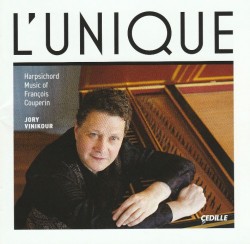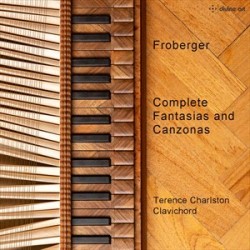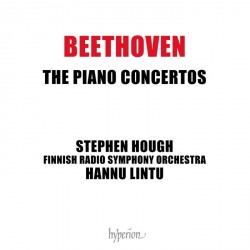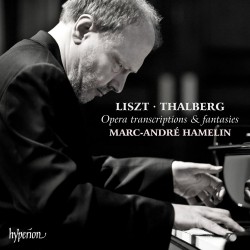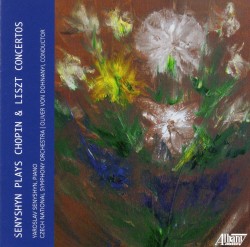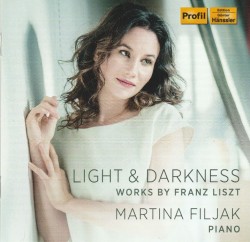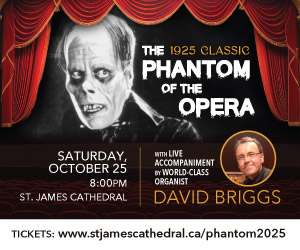Strings Attached - September 2020
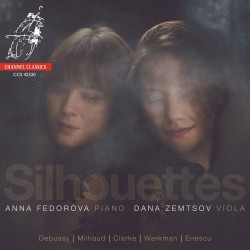 The compositions by French and non-French composers on Silhouettes, the new CD from violist Dana Zemstov and pianist Anna Fedorova (Channel Classics CCS 42320 channelclassics.com) purportedly were all inspired by French poetry, a link that seems tenuous at best and in some cases non-existent, but when there’s playing as rapturous and ravishing as this, who cares?
The compositions by French and non-French composers on Silhouettes, the new CD from violist Dana Zemstov and pianist Anna Fedorova (Channel Classics CCS 42320 channelclassics.com) purportedly were all inspired by French poetry, a link that seems tenuous at best and in some cases non-existent, but when there’s playing as rapturous and ravishing as this, who cares?
The 1919 Sonata by Rebecca Clarke opens the CD, and what an opening it is – flowing, passionate, intense and finely nuanced playing from both players in a gem of a work that combines Debussy and Ravel influences with an English mood. The “French connection” is a quote from Alfred de Musset that Clarke wrote on the opening page.
The first of three effective transcriptions of short pieces by Debussy – La plus que lente – precedes the 2007 Suite Op.51 by Netherlands composer Arne Werkman, its Allemande, Branle, Pavane and Tarantella movements providing Baroque form for modern musical content. Debussy’s Clair de lune is followed by Darius Milhaud’s four-movement Sonata No.1 Op.240 from 1944, another work that glances back at the Baroque style. Based on unpublished and anonymous themes of the 18th century, it has a really lovely third movement Air, later arranged by the composer for viola and orchestra. The rhapsodic and impassioned 1906 Concert Piece by the Romanian composer George Enescu precedes the final Debussy transcription, Beau Soir, providing a beautiful ending to an outstanding CD.
Both performers have technique, tone and musicality in abundance, but it’s a long time since I’ve heard such beautiful viola playing in particular, Zemstov displaying a wide range of tonal colour without any hint of the nasal quality that you sometimes encounter in viola recitals.
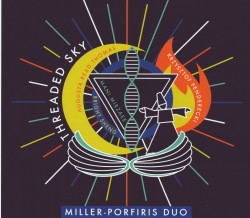 There’s more excellent duo work featuring viola on Threaded Sky, the new CD from the Miller-Porfiris Duo of violinist Anton Miller and violist Rita Porfiris (millerporfirisduo.org/store). Their Divertimenti CD was enthusiastically reviewed here in May 2017, and this latest recital of short works easily lives up to the same standard.
There’s more excellent duo work featuring viola on Threaded Sky, the new CD from the Miller-Porfiris Duo of violinist Anton Miller and violist Rita Porfiris (millerporfirisduo.org/store). Their Divertimenti CD was enthusiastically reviewed here in May 2017, and this latest recital of short works easily lives up to the same standard.
Three works by American composer Augusta Read Thomas – her complete violin-viola duo music – form the first half of the disc. Rumi Settings was written in 2001, its four movements – Dramatic, Resonant arpeggio, Suspended and Graceful and Passionate – inspired by the 13th-century Persian poet. Double Helix from 2011 was originally for two violins; Silent Moon was premiered in 2006.
Krzysztof Penderecki’s Ciaconna in Memoria Giovanni Paolo II from 2005 was the last movement of his Polish Requiem, a work that took 25 years to complete. Originally for string orchestra it was transcribed for violin and viola by the composer in 2009, the Miller-Porfiris Duo returning some of the omitted voices to the transcription here. Angel Fire by the Asian-American composer Bright Sheng has four movements, the third based on a Chinese folk song.
Finally, the very brief The Weight of Shadows from 2019, by the Iranian-American composer Mani Mirzaee, uses santoor mallets and not bows to produce sound, bouncing the light Persian hammers on the strings with a dulcimer-like effect.
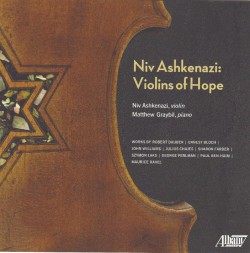 Niv Ashkenazi: Violins of Hope is a celebration of the artistic and educational project founded by Israeli luthier Amnon Weinstein and his son Avshalom in which instruments that were owned by Jewish musicians before and during the Holocaust are restored and played in the best concert halls by the world’s best players, the latter including Shlomo Mintz and Daniel Hope (Albany Records TROY1810 albanyrecords.com).
Niv Ashkenazi: Violins of Hope is a celebration of the artistic and educational project founded by Israeli luthier Amnon Weinstein and his son Avshalom in which instruments that were owned by Jewish musicians before and during the Holocaust are restored and played in the best concert halls by the world’s best players, the latter including Shlomo Mintz and Daniel Hope (Albany Records TROY1810 albanyrecords.com).
Violinist Ashkenazi and accompanist and fellow Juilliard graduate Matthew Graybil first became involved with Violins of Hope in 2017, and Ashkenazi is the only violinist to hold an instrument from the collection – in this case an early 20th-century Eastern European or German violin – on long-term loan. For this CD he chose Jewish repertoire that covers the instrument’s lifetime.
Robert Dauber’s Serenade (1942) makes a beautiful opening to an excellent recital that comprises Bloch’s Nigun (1923), John Williams’ Theme from Schindler’s List, Julius Chajes’ The Chassid (1939), Sharon Farber’s recent Bestemming: Triumph, Szymon Laks’ Trois pièces de concert (1935), George Perlman’s Dance of the Rebbitzen (1929), Ravel’s Kaddisch (1914) and Ben-Haim’s Berceuse sfaradite (1945) and Three Songs Without Words (1952).
It’s easy to understand why the Weinstein family has such trust and faith in Ashkenazi’s commitment and performance: he clearly has an emotional bond with this instrument, lending all of these short pieces a beautifully distinctive and idiomatic sound.
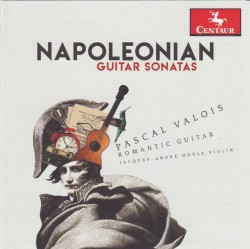 World-premiere recordings of French Romantic guitar sonatas by Antoine de Lhoyer, Louis-Ange Carpentras and Alexandre Alfred Rougeon-Beauclair are featured on Napoleonian Guitar Sonatas, with Montreal guitarist Pascal Valois (Centaur CRC 3733 naxosdirect.com).
World-premiere recordings of French Romantic guitar sonatas by Antoine de Lhoyer, Louis-Ange Carpentras and Alexandre Alfred Rougeon-Beauclair are featured on Napoleonian Guitar Sonatas, with Montreal guitarist Pascal Valois (Centaur CRC 3733 naxosdirect.com).
Valois is dedicated to reviving enthusiasm for the guitar’s role during the Romantic era, performing 19th-century repertoire on period instruments and employing contemporary stylistic practices, including improvised ornaments and cadenzas. One such practice here is that of not using right-hand fingernails, the bare fingertips resulting in a much softer and smoother sound. The guitar used is a French model built in the late 1820s by the Mirecourt luthier Cabasse-Bernard.
While the Carpentras Sonate brillante Op.1 (1816) and the Rougeon-Beauclair Sonate Op.4 No.1 are both for guitar solo, in the two de Lhoyer Sonates pour la guitare avec un violon obligé Op.17 (c.1801) Valois is joined by Montreal violinist Jacques-André Houle. The violin, though, tends to distract from, rather than enhance the guitar writing, especially being set so far back in the balance – presumably not to overwhelm the softer instrument.
Valois’ playing is accomplished, clean and sensitive throughout music that offers a fascinating insight into the early 19th-century classical guitar world.
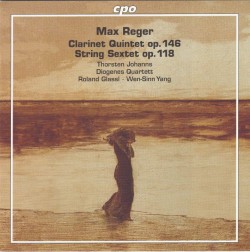 The Diogenes Quartett is the central ensemble on the new CD Max Reger Clarinet Quintet & String Sextet, being joined by clarinettist Thorsten Johanns in the Clarinet Quintet in A Major Op.146 and by violist Roland Glassl and cellist Wen-Sinn Yang in the String Sextet in F Major Op.118 (cpo 555 340-2 naxosdirect.com).
The Diogenes Quartett is the central ensemble on the new CD Max Reger Clarinet Quintet & String Sextet, being joined by clarinettist Thorsten Johanns in the Clarinet Quintet in A Major Op.146 and by violist Roland Glassl and cellist Wen-Sinn Yang in the String Sextet in F Major Op.118 (cpo 555 340-2 naxosdirect.com).
Despite the advanced tonal nature of his music, Reger had a strong affinity with earlier musical eras in addition to his deep Romantic roots, and the equivalent works by Mozart and Brahms were clearly the inspiration for his own Clarinet Quintet. Despite being completed in 1915 the work shows no influence of the Great War, a contemporary review of the October 1916 premiere referencing “the deep, holy peace of a mild autumn evening, which the last rays of the setting sun dress in gold.” Shades of Brahms indeed.
The large, complex String Sextet from 1910 is full of the features that have tended to make Reger’s music misunderstood and under-appreciated over the years, but is a deeply satisfying work with a really beautiful slow movement.
Playing throughout is of the highest quality on a terrific CD.
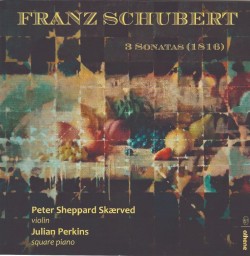 There’s another CD of the Franz Schubert 3 Sonatas (1816), this time with violinist Peter Sheppard Skærved and Julian Perkins on square piano (Athene ath 23208 naxosdirect.com).
There’s another CD of the Franz Schubert 3 Sonatas (1816), this time with violinist Peter Sheppard Skærved and Julian Perkins on square piano (Athene ath 23208 naxosdirect.com).
Skærved always excels not only in his playing but also in his exploration of and critical approach to the original musical sources, and this CD is no different, with 12 pages of fascinatingly detailed and informative notes illuminating every aspect of the performances. The German violin is by Leopold Widhalm I (1722-1776) with a very early Tourte bow probably from around 1770-80. The square piano is by Clementi & Co., London, 1812.
Skærved’s playing here is warmer than in some of his period performances; he’s not afraid to use vibrato, but a clear sense of period style is always present. The keyboard obviously lacks the fuller sound we might be accustomed to, but the tonal subtlety and nuance more than compensate. The performers admit to viewing the score as “a map that offers options rather than answers,” resulting in some interesting choices on repeats and frequent moments of surprise, particularly at the end of the Sonata No.2 in A Minor where, following the short, sharp final violin chords, the piano resonance is left to die away for fully 13 seconds.
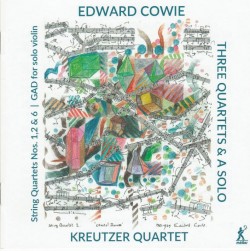 Peter Sheppard Skærved is also the first violinist in the Kreutzer Quartet, the performers on Edward Cowie: Three Quartets & A Solo, a new CD of music by the multi-disciplined English composer born in 1943 (Métier Records msv 28603 naxosdirect.com).
Peter Sheppard Skærved is also the first violinist in the Kreutzer Quartet, the performers on Edward Cowie: Three Quartets & A Solo, a new CD of music by the multi-disciplined English composer born in 1943 (Métier Records msv 28603 naxosdirect.com).
An author, lecturer, academic, visual artist, natural scientist, conductor and composer with two doctorates including studies in physics and mathematics, Cowie produces music which is a fusion of science, the natural world and visual arts. “I am more inspired,” he says, “by natural history than by musical history.”
Certainly the natural world is central to the quartets here: the two single-movement works, No.1 “Dungeness Nocturnes” from 1969 and No.2 “Crystal Dances” from 1977, and the four-movement No.6 “The Four Winds” from 2012, with the North, East, South and West winds representing the four seasons. It’s difficult music to describe, with an obviously contemporary sound but not completely dissonant despite a general lack of melodies and overtly tonal writing, and with a scurrying, restless feel that invokes insects and birds and is quite nocturnal at times.
The solo work GAD was written in 2017 for Skærved at his request, and addresses the composer’s almost lifelong suffering from generalized anxiety disorder.
All you need to know about the performances is that Cowie says that “no composer could ever be served, illuminated and translated by better or more brilliantly insightful players than the Kreutzer Quartet.”
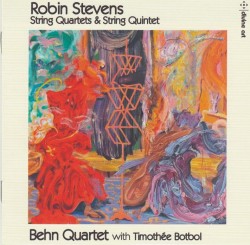 Another British composer whose name and music seem new to me is represented on Robin Stevens String Quartets & String Quintet, with the Behn Quartet and cellist Timothée Botbol (Divine Art dda 25203 naxosdirect.com).
Another British composer whose name and music seem new to me is represented on Robin Stevens String Quartets & String Quintet, with the Behn Quartet and cellist Timothée Botbol (Divine Art dda 25203 naxosdirect.com).
For Stevens (b.1958), the String Quintet in C Minor from 1980-81 was his first major composition, revised in 2018 for this recording. It features lush melodic writing with a truly lovely slow movement. As the composer notes, “unconscious references to, and near-quotes from, 20th-century music abound.”
In his early 30s Stevens was stricken with post-viral fatigue, a debilitating illness that kept him out of work for 17 years and limited his compositional activity to experimental miniatures. On regaining full health in 2007 he began a PhD in Composition, producing a major work in each of his six post-graduate years. The single-movement String Quartet No.1 uses “a handful of ideas, which are subjected to contrapuntal development of considerable complexity” in a work of “unremittingly dissonant harmonic language.” The String Quartet No.2, “Three Portraits” has three continuous sections – Impulsive One, God-Seeker and Arguer – followed by a brief Epilogue.
A bequest has enabled Stevens to begin recording his considerable catalogue of works; if future performances are of the same high quality as these then his music will certainly be well served.
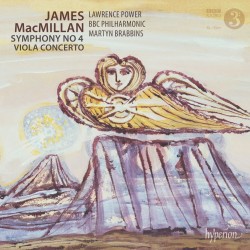 Finally, if you’re interested in contemporary concertos for viola then you should know that the latest CD of music by the Scottish composer James MacMillan, Symphony No.4 & Viola Concerto, features soloist Lawrence Power with the BBC Philharmonic under Martyn Brabbins in a terrific performance of the concerto written for Power in 2013 (Hyperion CDA 68317 hyperion-records.co.uk).
Finally, if you’re interested in contemporary concertos for viola then you should know that the latest CD of music by the Scottish composer James MacMillan, Symphony No.4 & Viola Concerto, features soloist Lawrence Power with the BBC Philharmonic under Martyn Brabbins in a terrific performance of the concerto written for Power in 2013 (Hyperion CDA 68317 hyperion-records.co.uk).
It’s a three-movement work with an ominous, uneasy first movement, a central movement of a devotional character with a lovely main theme and occasional “primal sreeam” outbursts and a sparkling finale with decided hints of Barber’s Violin Concerto at the end.
It’s a significant addition to the contemporary repertoire and discography.


